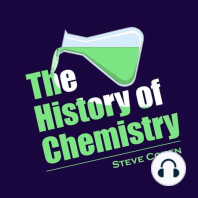20 min listen
34: Plastic Fantastic
ratings:
Length:
21 minutes
Released:
Oct 20, 2022
Format:
Podcast episode
Description
This episode introduces us to the first attempts at "plastic materials" in the 19th century, from vulcanized rubber by Charles Goodyear and Thomas Hancock, to Alexander Parkes's "Parkesine", the first synthetic polymer. Later polymers of the Victorian era include Celluloid, rayon, photographic film and the rise of easy photography, the mostly forgotten charmer of the Art Deco word called galalith, Bakelite, and cellulose acetate--also called Celanese. Among the chemists we meet are John Hyatt, George Eastman, Louis Bernigaud, Wilhelm Krische, and Leo Baekeland, and Camille and Henri Dreyfus. But even with these developments, chemists still weren't sure what a polymer really is.Support the show Support my podcast at https://www.patreon.com/thehistoryofchemistry Tell me how your life relates to chemistry! E-mail me at steve@historyofchem.com Get my book, O Mg! How Chemistry Came to Be, from World Scientific Publishing, https://www.worldscientific.com/worldscibooks/10.1142/12670#t=aboutBook ...
Released:
Oct 20, 2022
Format:
Podcast episode
Titles in the series (100)
23: Ionic but not Doric nor Corinthian by The History of Chemistry
